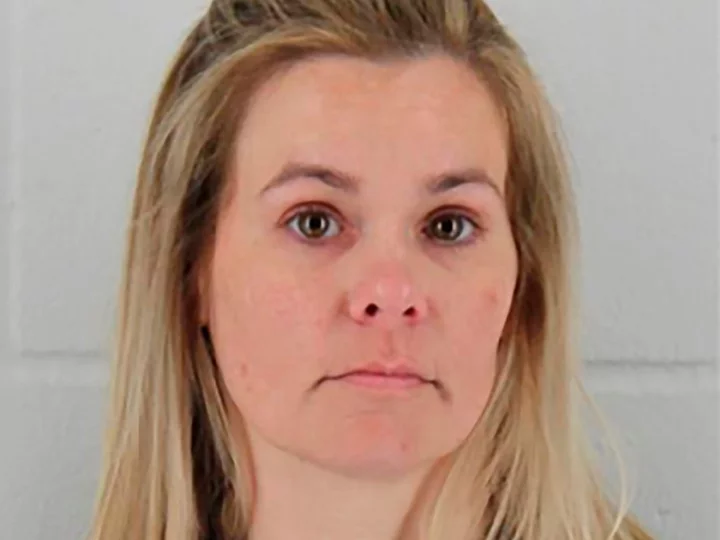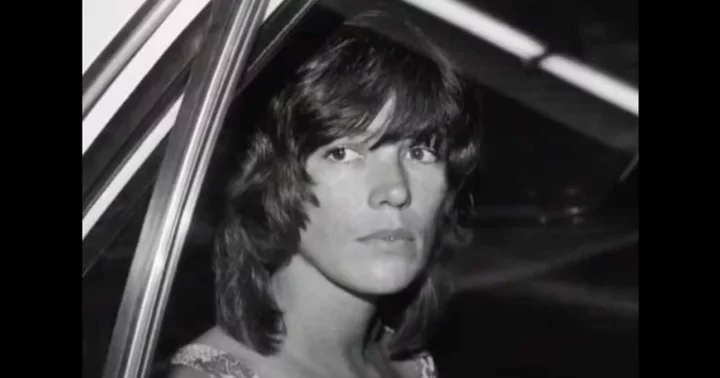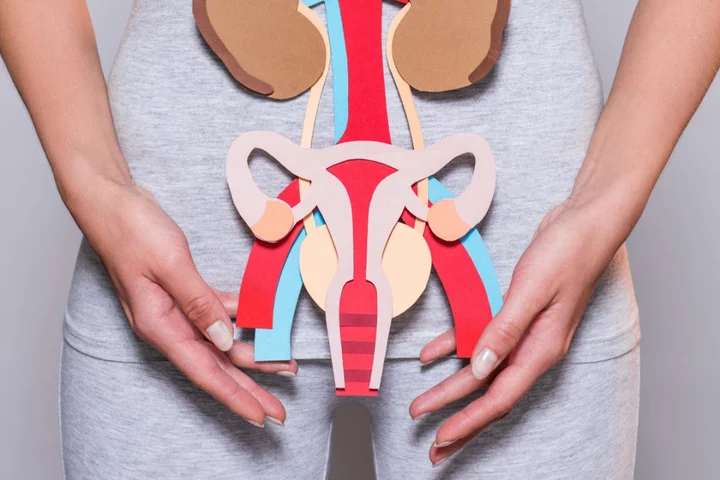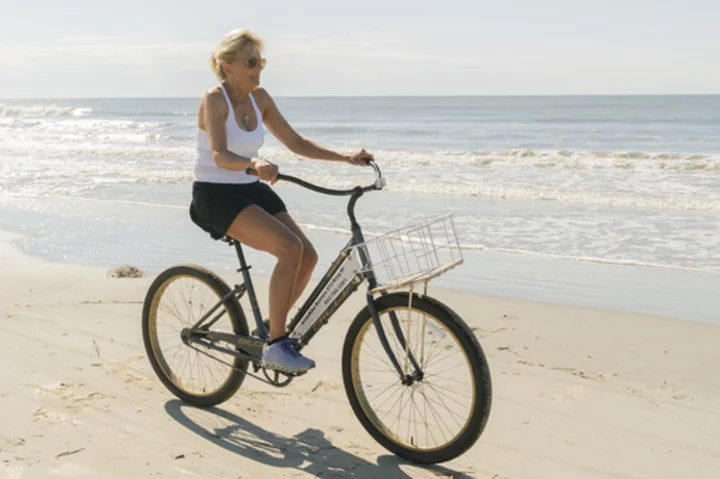
Former Missouri respiratory therapist sentenced to 18 years in prison over 2002 patient deaths
A former Missouri respiratory therapist has been sentenced to 18 years in prison after pleading guilty in connection with the deaths of two patients over 20 years ago. Jennifer Hall, who was arrested in May 2022, was sentenced on Friday to a state prison and will have the possibility of parole, according to KCTV. Hall was initially charged with two counts of first-degree murder, but in April this year she pleaded guilty to reduced first-degree involuntary manslaughter counts in connection with the deaths of Fern Franco, 75, and David Wesley Harper, 37. Hall also pleaded guilty to one count of attempted second-degree assault, according to the outlet. In 2002, nine patients — including Franco and Harper — died at Hedrick Medical Center in Chillicothe over a several month period. Charging documents described this series of events as “medically suspicious.” Hall started working at the hospital, which is in the north-central part of the state, in December 2001 until she was placed on administrative leave five months later, the publication noted. During that time the facility experienced 18 “code blue” incidents, a notable hike from the average the year before. Nine of those patients died, according to USA Today. In 2017, morphine and a muscle relaxant called succinylcholine were found in tissue samples taken from Franco, despite the fact that neither drug was prescribed by her doctors, according to reports. The discovery caused the case to resurface. “Because of Hall’s singular proximity to stricken patients, her access to pharmaceuticals which are deadly if misused, and her discovery and method of notifying staff of every patient’s cardiac emergency, nursing staff believed Hall was responsible for the patient deaths,” said Chillicothe Police Officer Brian Schmidt in a probable cause statement. “The substance Hall used to brutally take Fern Franco’s life, succinylcholin, paralyzes the victim’s muscles, including the diaphragm, causing the victim to suffer a ghastly death from suffocation while still maintaining full consciousness and awareness that they are unable to breathe,” the officer continued. Matt O’Connor, Hall’s lawyer, maintained his client’s innocence, saying that as a respiratory therapist, she didn’t have access to succinylcholine, morphine or any other drugs. He said he believed Hall was accused of being involved in the deaths because of an arson conviction, which she was cleared of in 2005. Aprille Franco, a granddaughter, told KCTV: “My dad wanted answers so we could finally put flowers on her grave knowing someone is responsible for this. “I didn’t know my grandma,” she added, “but given the chance I may have known her ... I’m focused on getting answers and helping other families get the answers they deserve.” “A sentence 20 years in the making,” said Livingston County prosecutor Adam Warren, who launched an investigation 10 years ago. “The sentence was for 18 years,” he said in a statement. “Jennifer Hall will be able to parole someday. But for now, we all sleep better knowing she is behind bars.” Mr Warren did not reveal a possible motive, but the case bears haunting similarities to one in the UK, where nurse Lucy Letby was sentenced to life in prison on Monday after being found guilty of murdering children who were in her care. Letby, the most prolific child serial killer in modern British history, was found guilty on Friday of murdering seven infants and attempting to murder six others when she was working on the neonatal unit at the Countess of Chester Hospital between June 2015 and June 2016. Read More Lucy Letby jailed for life: Nurse refuses to face court in ‘final act of wickedness’ An empty dock and a final act of cowardice: inside the Lucy Letby sentencing Baby murderer Lucy Letby to spend rest of her life in jail for ‘evil’ crimes
2023-08-22 03:54

Super PAC backing Tim Scott cancels fall TV ads as campaign struggles to gain traction
The super PAC backing Tim Scott's presidential campaign is canceling its slate of upcoming television ads, according to a memo sent to donors obtained by CNN, as the South Carolina senator's candidacy struggles to gain traction in the 2024 Republican primary.
2023-10-17 10:54

Palak Tiwari issues skincare warning to fans: 'Don't overdo it!'
Palak Tiwari has warned fans against "over-exfoliating" their face as she reveals a tip her mother gave her more than a decade ago.
2023-09-05 20:57

Sunak Uses King’s Speech to Squeeze Starmer Before Election
King Charles III set out an election-focused UK legislative agenda at the ceremonial opening of Parliament, with Prime
2023-11-07 22:27

Turkish spoiler drops out in pre-election shock
Third-party candidate Muharrem Ince on Thursday withdrew from Turkey's tight presidential election in a shock move that raised the chances...
2023-05-11 20:17

Amy Robach's daughter shares photo of former 'GMA' host's first marriage, calls them a 'John Hughes movie'
Amy Robach's daughter Ava Monroe took a trip down memory lane after sharing a snap of her mother and father
2023-09-16 16:55

A woman depicted in a drawing by the BTK serial killer has possibly been identified, sheriff says
One of the women depicted in drawings done by the self-proclaimed BTK serial killer, Dennis Rader, has possibly been identified, according to a sheriff in Oklahoma.
2023-09-05 20:57

Hundreds of thousands are without power as tornado-spawning storms batter the Southeast and Ohio Valley
Severe tornado-spawning storms battered the the Southeast and Ohio Valley, knocking out power to more than 615,000 homes and businesses across multiple states.
2023-06-26 15:00

Who are the surviving members of Manson Family cult? Killer Leslie Van Houten, 73, released from prison on parole
Leslie Van Houten has been granted parole from prison over 54 years after the horrific murders of Leno and Rosemary LaBianca
2023-07-12 17:26

Buying second-hand clothes ‘could prevent carbon emissions equivalent to 260,000 flights to Greece’
Shopping for second-hand fashion could prevent carbon emissions equivalent to those produced by 261,000 flights to Greece, analysis from Oxfam suggests. The charity has launched its annual campaign Second Hand September, which encourages people to shop second-hand and donate what they no longer need or wear for 30 days from Friday. Releasing new research to mark the annual campaign, Oxfam said that only 10 per cent of wardrobe contents are second-hand. The charity cited figures from the Waste and Resources Action Programme, which estimates that the average adult wardrobe consists of 118 items. Oxfam said that if half of those items were bought second-hand, it would prevent 12.5 billion kilograms of carbon dioxide created by manufacturing new clothes from entering the atmosphere – equivalent to that produced by 261,000 flights from London Heathrow to Athens. It also said that if each adult in the UK donated all the clothes they have not worn in the past year to charity shops, it could remove the need for 4.9 billion kilograms of carbon emissions – equivalent to flying a plane around the world more than 6,600 times. The findings come amid increasing awareness of the negative effects of the fashion industry, which accounts for 10 per cent of global carbon emissions, according to the UN, which is more than international aviation and shipping combined. Money raised from Oxfam fashion goes towards Oxfam’s work with partners fighting poverty and the impact of the climate emergency around the world. The charity said an increasing number of shoppers, activists and people within the fashion industry have been shopping second-hand since the first Second Hand September campaign in 2019. Bay Garnett, stylist, sustainable fashion advocate and senior fashion adviser at Oxfam, said second-hand clothes have become an emerging style and agreed it has become “cool to care”. “I’ve seen a huge change. Kids love to do it now and what’s brilliant is that second-hand now has become a trend. It’s a genuine tipping point for it being a style choice,” she told the PA news agency. “I also think the big difference now is that it’s seen as a point of activism and originality. Kids are proud that they’re going to second-hand because it shows independence and a form of activism and strong decisions.” Ms Garnett, who came up with the idea to do visual campaigns for Second Hand September, collaborating with stars such as Sienna Miller and Felicity Jones, added that second-hand shopping is also an “antidote to the culture of newness, of Instagram and disposability”. She added: “When you shop at second-hand shops, the money that you’re spending raises crucial funds for Oxfam’s work fighting poverty and the impact of the climate emergency. That’s a fantastic place to put your money. “That’s pretty powerful in itself – the fact that it’s not going to make people richer but it’s going to help the people who are poor or the most disenfranchised by this whole situation.” Lorna Fallon, Oxfam’s retail director, said: “As a major emitter of greenhouse gas, much of the fashion industry as it stands is a threat to people and planet.” She added: “Shopping this way sends a clear message to the fashion industry that consumers want, and expect, things to change.” Miquita Oliver, Oxfam’s second-hand clothes ambassador, said: “It’s timely that we’re talking about second-hand clothes and living in a more sustainable way, as awareness of the environmental impact of our shopping choices is growing. “Today’s research from Oxfam shows that something as simple as buying clothes second-hand, and donating what we don’t wear any more, can help change the world for the better. It’s as simple as that.” Read More Woman adopts husband’s ex-wife’s son after growing up in foster care herself Florence Pugh says backlash to her nipple-bearing dress shows people are ‘terrified of the human body’ Woman says she started to wear ‘terrible wigs’ after her job banned her pink hair
2023-08-30 17:55

What are gynaecological cancers and how can you prevent them?
September is Gynaecological Cancer Awareness Month, which sees charities joining together to put the spotlight on the range of cancers that start in the female reproductive system. There are five main types of gynaecological cancer – cervical, ovarian, vaginal, vulvar and uterine (or womb) – plus fallopian tube cancer, although this is very rare. Around 22,000 women are diagnosed with a gynaecological cancer each year in the UK, of which 21 die every day, according to charity The Eve Appeal. However, some of these cases are preventable, and with the right treatment, many gynaecological cancers have high survival rates. Here, experts answer some key questions about the prevention and treatment of gynaecological cancers. What are the symptoms of gynaecological cancers? “The symptoms of gynaecological cancers can vary,” says gynaecologist Oudai Ali from New Victoria Hospital. “But some common signs to watch out for include abnormal vaginal bleeding, pelvic pain or discomfort, unusual vaginal discharge, new vulval lump or ulcer and changes in urinary or bowel habits.” If you’ve noticed any of these signs, follow the ‘if in doubt, check it out’ rule, Ali says: “It’s crucial for patients to consult their GP if they experience any of these symptoms, as early detection can significantly improve treatment outcomes.” Severe ongoing bloating and feeling full very quickly, unintentional weight loss and fatigue are also indications it’s a good idea to get things checked out. Are regular screenings important for gynaecological health? Routine screening programmes are not available for all types of gynaecological cancer. However, where they are available – such as cervical smear tests – attending screenings can be life-saving. “Regular screenings, such as smear tests and HPV (human papillomavirus) tests, are vital for the early detection of cervical cancer and can prevent it at its pre-cancer stage,” says Ali. “Additionally, it’s important for individuals to discuss family history and risk factors with their healthcare provider to determine which screenings are appropriate.” Research shows that cervical cancer risks are higher for people who don’t attend screenings. “Cervical cancer risk is estimated to be 1.7% among women in the UK who don’t attend screenings,” says Mr Andrew Pooley, consultant gynaecologist at New Victoria Hospital. “Other risk factors are related to a higher exposure to HPV, the use of the contraceptive pill for over 10 years, or a weak immune system.” Ali adds: “The age to start screening can vary depending on the type of cancer and a patient’s individual risk factors. Pap smears typically start around age 25.” For cancers where there isn’t a national screening programme, your GP can refer you for blood tests and scans if you are concerned about symptoms. Can gynaecological cancers be prevented? While not all gynaecological cancers can be prevented, there are steps you can take that in some cases may help reduce your risk. “Maintaining a healthy lifestyle, including a balanced diet, regular exercise, and avoiding tobacco, can help,” Ali says. “The HPV vaccine is a powerful tool in preventing certain gynaecological cancers. It protects against several strains of HPV that can lead to cervical, vaginal, and vulvar cancers. It’s recommended for both boys and girls, ideally before they become sexually active, to provide the greatest protection.” Some gynaecological cancers can have a hereditary component, too. “A family history of bowel, breast or ovarian cancer may increase the risk,” Ali explains, which is why it’s important to discuss family medical history at screenings. “They can assess the risk accurately and recommend appropriate screenings or genetic testing if necessary.” This said, anyone can potentially get cancer, so getting any symptoms checked as soon as possible is always key. What are the available treatment options for gynaecological cancers? Treatment options vary depending on the type and stage (from one to four) of cancer. “They may include surgery, chemotherapy, radiation therapy, hormone therapy, targeted therapy, or a combination of these treatments,” says Ali. “The choice of treatment is personalised to each patient’s specific diagnosis and medical history.” Survival rates for the main five gynaecological cancers when diagnosed at stage one range from 75%-95% according to Cancer Research, which further highlights the importance of early detection. New Victoria Hospital has launched its Community Champion Campaign, which will offer free scans and treatment to people across the UK for the sum of £125,000. To apply visit: newvictoria.co.uk/communitychampioninitiative. Read More Charity boss speaks out over ‘traumatic’ encounter with royal aide Ukraine war’s heaviest fight rages in east - follow live Alzheimer’s: How and when to talk to someone about their memory loss As Simon Cowell shares positive therapy experience, how can it help even if you aren’t in crisis? Project launched to bust myth that cancer is a ‘white person’s disease’
2023-09-01 14:22

Far-Right Won the Dutch Election: Here’s What You Need to Know
Geert Wilders was the surprise victor in Wednesday’s Dutch elections, after a late surge that catapulted his anti-EU
2023-11-23 08:50
You Might Like...

Biden vows to stand by Ukraine, despite budget fiasco

The View's Ana Navarro shares hilarious tips as she welcomes Lionel Messi to Miami: 'Never show up to a party on time'

Jill Biden says exercise including spin classes and jogging helps her find 'inner strength'

Fans give thumbs down to Justin Timberlake's collab with BTS' Jungkook on ‘3D’ remix as shadow of Britney Spears scandal hangs heavy

FACT FOCUS: Trump twists Presidential Records Act, Clinton ‘sock drawer’ case to mount defense

Russia accuses Ukraine of damaging a nuclear waste warehouse as the battle for Avdiivika grinds on

'It can cause such huge fear': Naomi Campbell talks about addiction battles during her rise to stardom

Putin praises 'dear friend' Xi, pitches Russia's Northern Sea route
